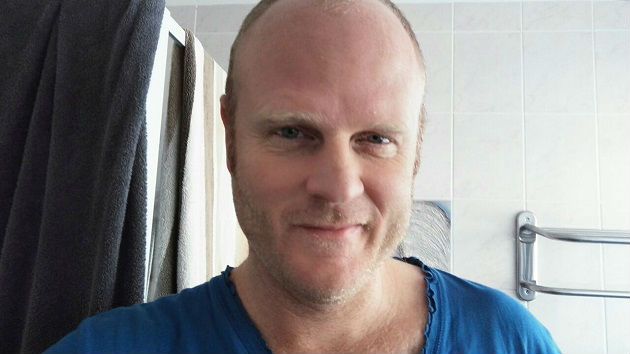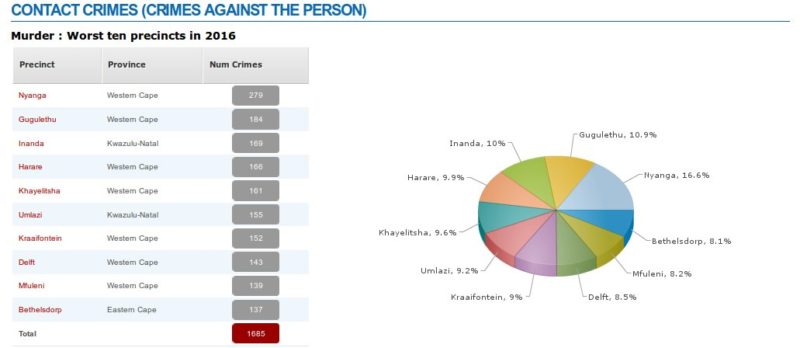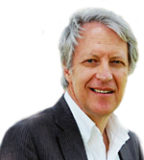Pro-black white journalist stabbed to death by… black robbers
A spokesman for the municipality of Cape Town, Steven Otter, became the latest high-profile casualty of South African crime. Free West columnist Dan Roodt offers the facts and some of his thoughts.
Published: December 24, 2016, 12:16 pm
In life Steven Otter castigated his fellow whites for their “misperception” of black crime in South Africa. Yet in one of those harsh racial ironies the country is famous for, he was stabbed to death by two black robbers in his home on Reconciliation Day 16 December 2016, dying in the arms of his coloured partner, Nathalie Williams — in front of her 7-year old daughter.
South Africa’s minister of culture, Nathi Mthethwa, issued a statement lamenting his death: “We are devastated and outraged to learn about the fatal attack which claimed the life of author and former journalist Steven Otter.”
In reference to the time Otter spent living in the black township of Khayelitsha, minister Mthethwa said: “Steven Otter embodied the spirit of non-racialism. Detailing his decision to move to Khayelitsha he said he was embraced with open arms… our nation has lost a selfless man of great character.”
Otter’s former boss, Cape Town mayor Patricia de Lille, equally expressed her condolences over the brutal killing of someone who had once been her official spokesman when she still had her own political party, the Independent Democrats. However, both De Lille and Otter shared a more sinister past affiliation with anti-white, revolutionary parties, such as the Pan Africanist Congress (PAC), and Julius Malema’s Afro-Marxist Economic Freedom Fighters (EFF), respectively.
When he died, Steven Otter was Cape Town municipal spokesman for transport. Although Cape Town is run by the left-liberal DA, Otter’s membership of the EFF had previously caused a scandal in 2014 when a photograph showed him at an EFF rally in Khayelitsha wearing the party’s revolutionary red paramilitary regalia.
At the time, two white English liberal Capetonians at the municipality – probably DA members – minimised Otter’s membership of a revolutionary anti-white party in the media. The first was Melissa Whitehead who told the Independent newspaper group: “Otter is involved in transport issues, and he is not involved in anything political.”
The second person to come to his defence at the time was Brett Herron, mayoral committee member for Transport for Cape Town, who said that “it was every citizen’s constitutional right to belong to a political party, (therefore) it would not be necessary for the city to comment on Otter’s political membership.”
Herron went on to state: “Regardless of whether he is or isn’t (a member of the EFF), employees in the city are not prohibited from joining political parties.”
Otter’s friends in the EFF, despite being resolutely anti-white, were ostensibly upset at his untimely death, with one Mbulelo Dwane tweeting:
Rest In Revolutionary Peace Fighter #StevenOtter #EFFCapeMetro will miss you… @EFF_Cape_Metro @EFFSouthAfrica @MbuyiseniNdlozi #RIPStevovo pic.twitter.com/k3fCmfyA5u
— Mbulelo Dwane (@Mbulelodwane) December 16, 2016
However, the same Mbulelo Dwane tweeted three days later:
Black people let’s deal with these White people one time, after all it was #Mandela who spoke reconciliation & the man is no more…
— Mbulelo Dwane (@Mbulelodwane) December 19, 2016
Steven Otter received the ultimately South African reality check, being confronted in his own bedroom by two knife-wielding black criminals. Yet how do we explain his seemingly confused ideology and behaviour, working for a DA-run municipality, but feeling more at home in the far-left, anti-white EFF? Was there something masochistic in his love for the EFF, a tinge of the Stockholm syndrome? How did his sojourn of a year or so in Khayelitsha affect his judgment about his personal safety?
Every day there are 50 murders in South Africa, more than in some European countries in an entire year! Murder is no longer news; it has been normalized. The public has been anaesthetized into thinking it is “business as usual”. If Otter had not been a high-profile employee at the City of Cape Town, his death would have passed unnoticed too, like so many others. Yet, as a poster boy of the multicultural ideal of ethnic mixture, and someone who had abjured his European origins to live among the Xhosas of Cape Town, the media in their equally confused zest for the sensational have emphasised his tragic death.
In the South African mainstream media’s hysterical denunciations of white racism — the opposite is quite acceptable — there is an underlying, unvoiced assumption: that only racists deserve to die violently. So when an anti-racist like Otter falls victim to black-on-white violence, there is a sense that the logic of multiculturalism and ethnic mixing is breaking down. Surely, after everything that Otter had done to deny his “whiteness” — to use a fashionable liberal term — he deserved to live?
One way in which crime in South Africa is rationalised by the media is to present it simply as “random”, like the weather or traffic accidents. When murder occurs, we must see it as an unfortunate accident disturbing the happy, smiling, multicultural faces of the liberal narrative. It has all the hallmarks of a natural disaster that befalls us, especially the innocent and righteous – from the liberal point of view — such as Steven Otter.
The media reports also emphasised Otter’s “eccentricity”. Apparently he refused to wear shoes, even when dressed in a suit. He was also a strict vegetarian or “vegan”. But these attributes were not enough to make Steven Otter one of a kind, a singularity. After all, we all know vegetarians and in South Africa, due to the warm weather for nine months of the year, many people go without shoes, particularly children.
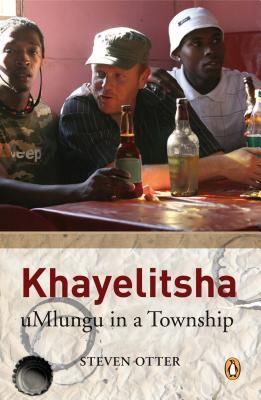 If anything, Steven Otter was someone who took many precepts of liberalism and multiculturalism seriously. It is often remarked that liberals are the supreme hypocrites who prefer to live in majority-white neighbourhoods from where they observe their utopia-in-the-making from a safe distance. By choosing to live among the Xhosa migrants of Khayelitsha, recounted in his autobiography Khayelitsha: uMlungu in a township, Otter was already playing Russian roulette, gambling with his life. Even a cursory glance at South African crime statistics would persuade one that Khayelitsha is one of the most dangerous areas on the planet, with 161 people murdered there in 2016, according to official police statistics. That is a cold, hard fact, impermeable to the warm, fuzzy sentiments of contemporary liberal thought.
If anything, Steven Otter was someone who took many precepts of liberalism and multiculturalism seriously. It is often remarked that liberals are the supreme hypocrites who prefer to live in majority-white neighbourhoods from where they observe their utopia-in-the-making from a safe distance. By choosing to live among the Xhosa migrants of Khayelitsha, recounted in his autobiography Khayelitsha: uMlungu in a township, Otter was already playing Russian roulette, gambling with his life. Even a cursory glance at South African crime statistics would persuade one that Khayelitsha is one of the most dangerous areas on the planet, with 161 people murdered there in 2016, according to official police statistics. That is a cold, hard fact, impermeable to the warm, fuzzy sentiments of contemporary liberal thought.
According to the census figures for 2011, there were 391 749 people living in Khayelitsha, of whom 99,49% were black and 96,99% spoke Xhosa as a first language, the language of Nelson and Winnie Mandela, as well as many other ANC leaders.
The murder rate in Khayelitsha, expressed as the number of homicides per 100 000 members of the population, is 41, which compares with the national average of 33 in South Africa.
On the blurb of Otter’s book, we read:
“Ignoring advice from his white friends, and to the bemusement of his black friends, Steven Otter throws caution to the wind and moves into Khayelitsha, a black township outside Cape Town. The story of his experiences in the uneven spread of shacks and informal housing that are home to more than a million people provides an unusual perspective on and insight into a predominantly Xhosa community and their reaction to an umlungu in their midst. Steven comes to understand his identity as a South African, the true meaning of community and brotherhood.”
The word “umlungu” literally means “scum of the sea” and is used by South African blacks as an insult for whites generally. In a display of white guilt and subservience, Otter embraced the term to describe himself.
The Cape Town municipality seems to have used Otter’s experience of life in a black township to deal with their more recalcitrant inhabitants, such as illegal squatters. When Vanessa Hartley, a white resident of Hout Bay, a suburb along the Atlantic coast, recently complained of too many Xhosa migrants streaming into the area, she was accused of racism and charged with hate speech and criminal libel (crimen injuria). However, in his statement after Otter’s murder, Brett Herron of the municipality said that Herron had played a key role in “upgrading roads in Imizamo Yethu”, the Xhosa migrants’ stronghold in Hout Bay. According to him, Otter “had knocked on every resident’s door to ask residents to work with the city”.
During the time he lived in Khayelitsha, an office colleague of Steven Otter had told him, “One day they will turn on you.” In his book he ironically wrote:
“Even now, when I walked past her desk in the office, she would turn a cynical eye on me and snort, ‘So, still alive, are you?’ I began to pray that I didn’t die some accidental death that would prove Mary’s prejudices correct.”
However, even during his stay in Khayelitsha, Steven Otter had come across the dark side of black life when he befriended a gang member, Zane, who one day confessed to him that he had killed a white man during a bank robbery. He recounts it in his autobiography as follows:
“Zane showed almost no emotion when he eventually spoke to me of that day, all those years ago, at a Bellville bank, although I felt him watching me closely, searching for a sign that his story was hurting, perhaps even killing, our friendship.
It was a simple, brutal tale. He and two of his friends had been drunk out of their wits when they arrived at the bank, their hearts and minds overrun with lust for money and blood. I asked Zane the typically South African question.
‘Was the man you shot black, coloured or white?’
Zane smiled.
‘He was an Afrikaner.’
I had to ask whether or not he felt guilty about killing this Afrikaner. Zane answered without any visible emotion.
‘I have never felt guilty for what I did.’
‘Why not?’
‘Because I hate the Boer.'”
In these casually spoken words, Otter had recorded the ethnic motivation behind many South African murders. While the politician and journalist was not a Boer or Afrikaner himself but an Englishman, he would also die as a result of the racial hatred harboured by the Xhosa tribe against Afrikaners and whites generally. For surely his robbers in his Claremont home could simply have taken his goods without killing him?
As may be seen from the above statistics concerning the worst ten police precincts in South Africa as regards the number of murders, the glamorous city of Cape Town much beloved by foreign tourists is over-represented with no fewer than seven areas.
The notion that Steven Otter’s fearlessness and underestimation of crime was a unique trait is negated by the fact that most white Capetonians do not consider their city dangerous. I spoke to a white, English-speaking couple from the suburb of Mowbray and asked them if they had heard about Otter’s murder. Although vaguely aware of his existence and that he had written a book “to overcome his fears of living among blacks”, they did not know that he had been murdered. The couple acknowledged that “some areas in Cape Town had a high murder rate”. “But,” they assured me, “it only happens in certain areas. So your chances as a rich person of being killed in Cape Town are far lower than in Johannesburg, which is much more mixed.”
What they implicitly told me is that Cape Town was safer because it was more segregated than Johannesburg, with whites living in some areas and blacks and coloureds in others, the more dangerous ones.
Again, this is belied by Steven Otter’s experience as he had just moved to a wealthier, upper-middle class suburb, Harfield Village, Claremont, which would be mostly inhabited by white people. So the killers of the most dangerous Xhosa and coloured areas easily cross into those “safe suburbs” where murder rates are statistically lower, but no less vulnerable.
According to a message on Facebook by British immigrant Ian Hunt, Otter was an admirer of Fidel Castro, and would have conversations with him “up in heaven”:
“Today an old friend and a good friend was tragically taken away from us in a brutal act. Steven Otter was the first friend we made when we arrived in South Africa. We randomly bumped into him in a bar late one night and chatted and chatted and from that a friendship was born, random but awesome are words that describe him, a very very special person who will now be having incredible small talk and fun with his hero Fidel Castro up in heaven 😊. We do and will miss you Stevovo x love in our hearts always for you Ian and Kirsty Hunt x.”
Thanks to liberal ideology, which has brought us light sentences for murder and rape — but not for “hate speech” — as well as affirmative action, white guilt, and multifarious political illusions, South Africa is descending further and further into a social hell from which it may never recover. Steven Otter, as a former employee of the liberal Cape Argus newspaper and revolutionary EFF member suffered from those same illusions. He thought, despite rational evidence to the contrary, that both Khayelitsha and Cape Town were safe. Crime and violence were based on the “misperceptions” of some whites. Probably he did not own gun with which to defend himself against his assailants.
In a sense then, and notwithstanding one’s natural sympathy for the individual and his tragic death, he died as much due to the decrepitude forced on us by liberalism as by the hand of his assailants who had stabbed him in the face and body.
All rights reserved. You have permission to quote freely from the articles provided that the source (www.freewestmedia.com) is given. Photos may not be used without our consent.
Consider donating to support our work
Help us to produce more articles like this. FreeWestMedia is depending on donations from our readers to keep going. With your help, we expose the mainstream fake news agenda.
Keep your language polite. Readers from many different countries visit and contribute to Free West Media and we must therefore obey the rules in, for example, Germany. Illegal content will be deleted.
If you have been approved to post comments without preview from FWM, you are responsible for violations of any law. This means that FWM may be forced to cooperate with authorities in a possible crime investigation.
If your comments are subject to preview by FWM, please be patient. We continually review comments but depending on the time of day it can take up to several hours before your comment is reviewed.
We reserve the right to delete comments that are offensive, contain slander or foul language, or are irrelevant to the discussion.
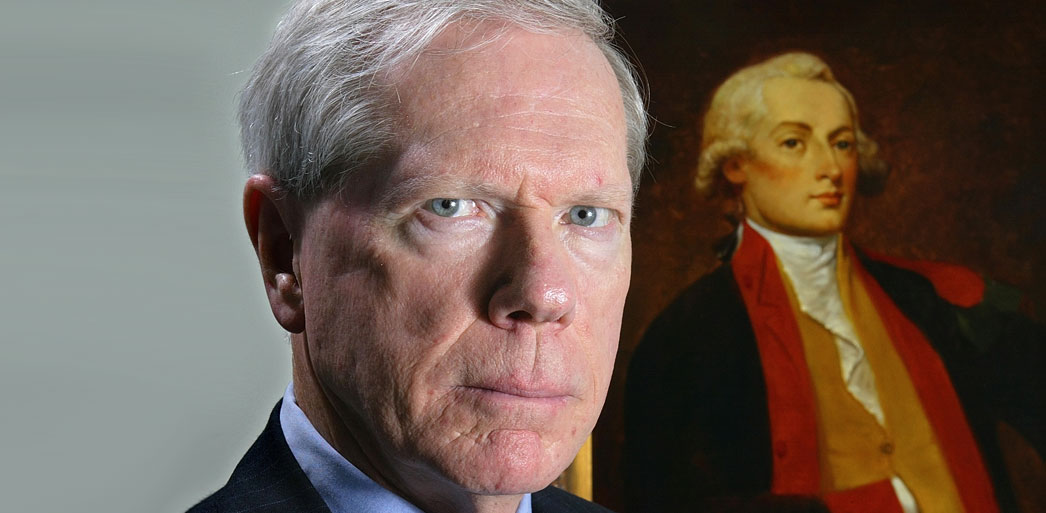
The inflation hoax
Yes, prices are rising, but not for the reasons the Federal Reserve says. When I say inflation is a hoax, I mean the purported cause is a hoax. The Fed is fighting a consumer inflation, a “demand-pull” inflation. But what we are experiencing is a supply-side inflation caused by the Covid lockdowns and economic sanctions that closed businesses, disrupted supply chains, and broke business relationships while reducing energy supplies to the UK and European countries, thus forcing up costs in a globalized economy.
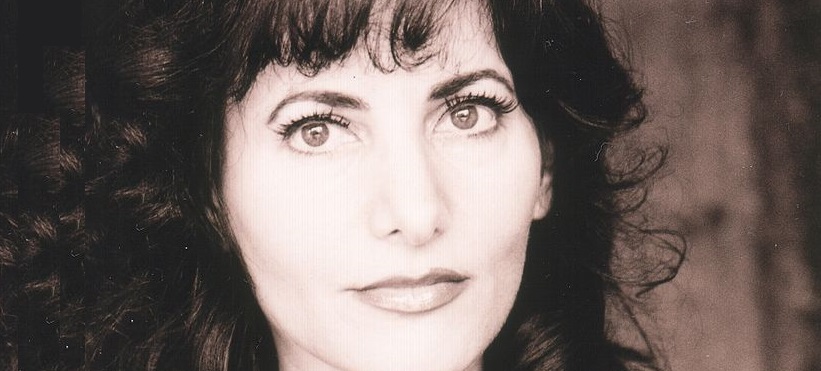
Two-Party Pox: The Republicans suck and the Democrats want to kill you
The Republican Party has never stood up for Americans, will never stand up for them and is not going to do what it takes. Past is prologue.

Russia’s loss at Kharkov highlights crippling shortage of men
KharkovThe frontline in this case relied on heavily outnumbered 2nd rate Lugansk draftees plucked from the LPR.
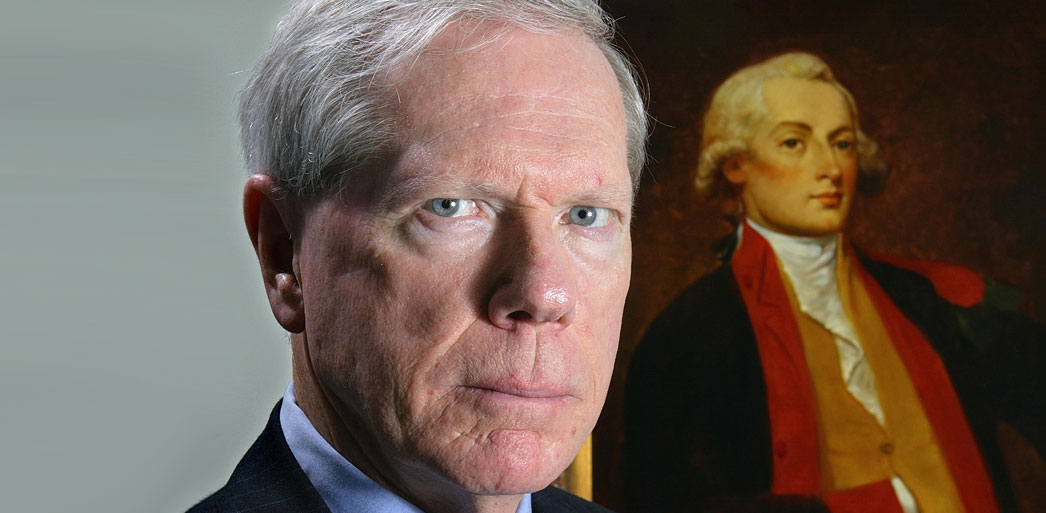
A country without an honest media is lost
For some time I have reported to you that in place of a media, a media that our founding fathers relied on to protect our society, the United States has had a propaganda ministry whose sole purpose is to destroy our society.

Sweden’s decaying democracy
A journalist is arrested and dragged out of the Gothenburg Book Fair because he politely asked a powerful politician... the wrong questions about his support for the ethnically-cleansed Zimbabwean dictatorship. Not only journalists, but academics and bloggers are being hounded by the leftist establishment daily. And the leftists have all the nasty instruments of the state at their disposal. Citizen reporter Fabian Fjälling looks into their excesses.
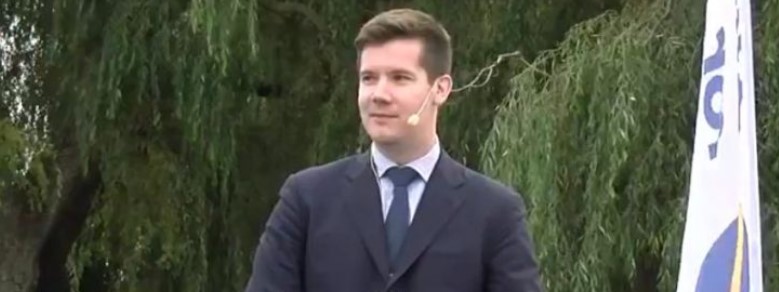
The geopolitical future of Nordic countries
Between unity and disunity, independence and foreign interference: Nordic countries have to either choose between creating an independent neutral block in the North, or seeing the region being divided between the great powers.
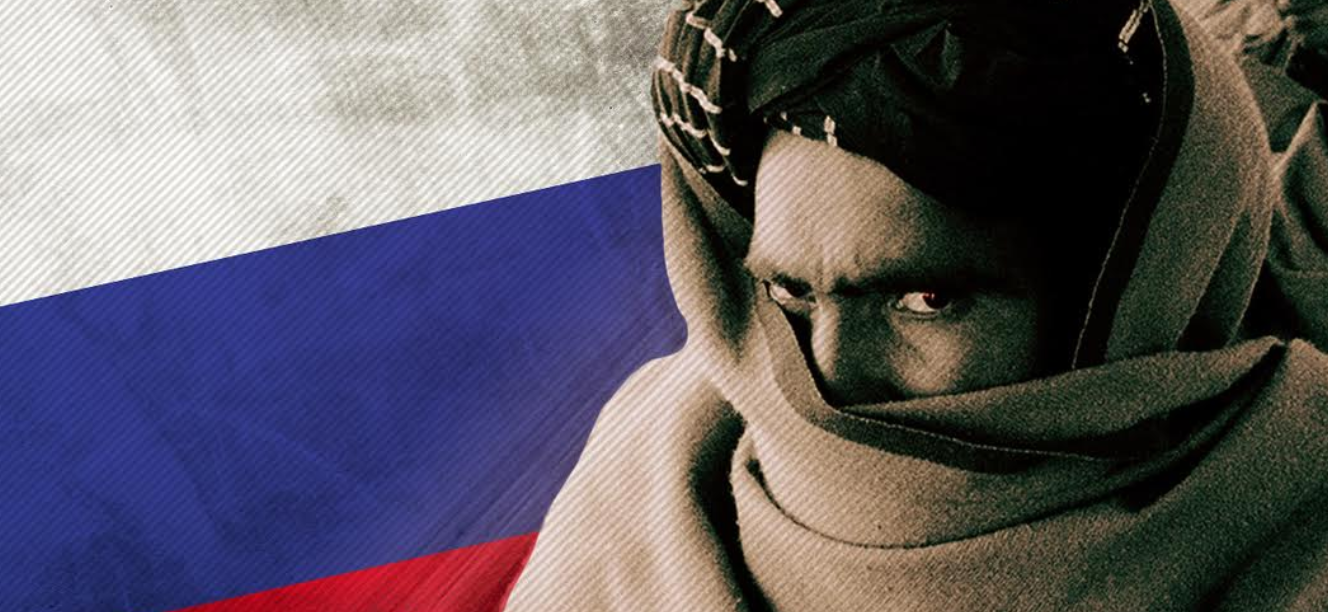
Russian, Chinese intelligence: ISIS heading for Central Asia with US cover
Operatives of the crumbling Islamic State in Syria and Iraq (ISIS) are moving to new battlegrounds near the Russian border, intelligence sources have revealed.

The unraveling of US/Russian relations
Washington has taken nuclear war against Russia from a hypothetical scenario to a real danger that threatens the future of humanity.

Hero commander killed in Syria – when the war is nearly won
For most Syrians it came as a shock: One of the most popular military commanders of the Syrian Arab Army, Issam Zahreddine, was killed on 18 October 2017.
